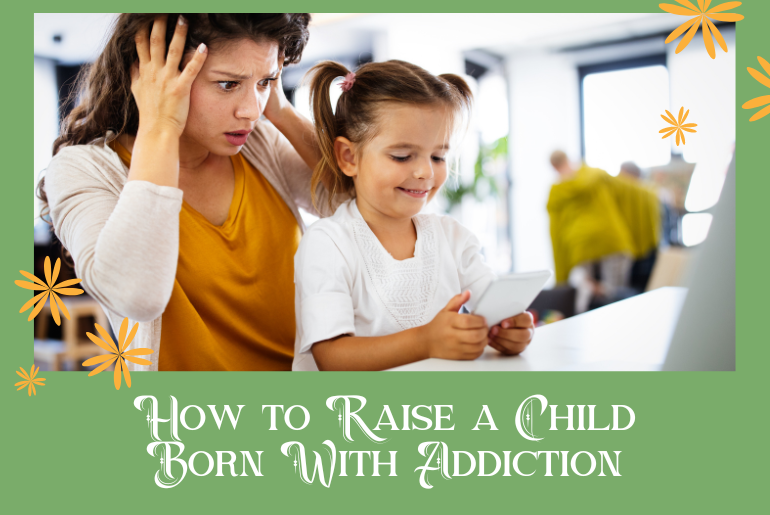The relationship between parents and children can be delicate and complex, and disagreements or conflicts can arise from time to time. Many children face one issue: their parents hold grudges, which can cause significant emotional turmoil and stress. But why do parents hold grudges, and what impact can it have on their children? Parents often hold grudges because they want their children to learn from their mistakes and become better individuals.
Grudges can also stem from a desire to protect themselves and their feelings and past experiences that have shaped their perspective and behavior. Whatever the reason, both parents and children need to understand the motivations behind grudges to navigate and improve their relationship effectively. This article focuses on why parents hold grudges and highlights the ways to overcome them.
ALSO READ: The Different Faces of Parenting: An Overview of Parenting Styles
Reasons Parents Hold Grudges
Parents holding grudges is common, often leaving children feeling hurt and frustrated. But why do parents hold onto these grudges, even long after conflicts have been resolved? Let’s take a closer look at some of the most common reasons:

A. Unresolved conflicts or past traumatic experiences
Parents may hold grudges due to conflicts or traumatic experiences that have never been fully addressed or resolved. These experiences can shape their perspective and behavior, leading them to hold grudges even in new situations.
B. Difficulty in forgiving and letting go
Forgiveness and letting go can be difficult for anyone, but it can be especially challenging for parents. They may hold grudges if they have trouble forgiving their children or others for past mistakes or wrongdoings.
C. A desire for justice or retribution
For some parents, holding grudges is a way to seek justice or retribution for perceived wrongdoings. They may feel that their grudges are justified and that their children need to learn a lesson.
D. A need for control or power
Sometimes, grudges can be a way for parents to exert control over their children and maintain their authority. They may use grudges as a means of exerting authority and setting boundaries.
E. Difficulty in communicating effectively
Finally, some parents hold grudges due to a lack of effective communication skills. Effective communication is key in any relationship, especially between parents and their children. If communication breakdowns occur and grudges form, parents can struggle to let go of those feelings.
The Impact of Parental Grudges on Children
While the reasons behind parental grudges are important to understand, it’s equally important to examine the impact they can have on children. Let’s explore some of the consequences of parental grudges:

1. Emotional turmoil and stress
Parents holding grudges can create an emotionally charged environment for children. This can lead to increased stress and turmoil for the child, impacting their overall well-being. This can also lead to feelings of insecurity, anxiety, and depression.
2. Unequal treatment
If a parent holds a grudge against one child, it can lead to unequal treatment of that child compared to their siblings. This can cause hurt and resentment and have long-lasting effects on the child’s relationships and self-esteem.
3. Internalization of grudges
Children may internalize the grudges their parents hold, leading them to carry those grudges into adulthood and affecting their own relationships with others.
Overcoming the Cycle of Parental Grudges
Breaking the cycle of parental grudges can be a challenging but important step toward improving the relationship between parents and children. Here are some strategies that can help:

CHECK OUT: Child Support and Development: A Comprehensive Guide
A. Understanding the reasons behind grudges
To overcome grudges, it’s important to understand their reasons. This can involve looking at past conflicts and experiences and exploring underlying motivations and emotions.
B. Seeking support from a therapist or counselor
Working with a therapist or counselor can provide valuable support and guidance for overcoming grudges. They can help both parents and children identify the root causes of grudges and work towards resolving them healthily and constructively.
C. Practicing forgiveness and letting go
Forgiveness and letting go can be difficult, but they are key components of overcoming grudges. This can involve taking steps to let go of past hurts and resentments and focusing on the present and future.
D. Improving communication skills
Effective communication is key in any relationship, especially the relationship between parents and their children. By improving their communication skills, both parents and children can better understand each other and work towards positively resolving conflicts.
Now that we’ve examined the causes of parental grudges and some ways to overcome them, let’s answer some popular questions people ask about holding grudges.
FAQs
What type of personality holds grudges?
No specific personality holds grudges, as anyone can develop a tendency to hold grudges. However, some factors that can contribute to a tendency to hold grudges include unresolved conflicts or past traumatic experiences, difficulty in forgiving and letting go, a desire for justice or retribution, a need for control or power, and difficulty in communicating effectively.
What does holding grudges say about a person?
Holding grudges can say a variety of things about a person, depending on the individual and the situation. In general, holding grudges may indicate that the person has difficulty letting go of negative feelings and experiences and may struggle with forgiving others. It may also suggest that the person has unresolved conflicts or past traumatic experiences that continue to impact their present relationships. However, everyone is unique and may have their reasons for holding grudges.
How Long do grudges last?
The duration of grudges can vary greatly, as some people may be able to let go of negative feelings relatively quickly while others may struggle to move past them. Grudges can last for a short time or persist for many years, even a lifetime. It largely depends on the individual’s ability to process and work through negative feelings and experiences. However, with support and the development of healthy coping strategies, individuals can overcome grudges and move towards a more positive and fulfilling life.
What do grudges lead to?
Grudges can negatively impact individuals, leading to emotional turmoil, stress, unequal treatment, internalization of negative feelings, damaged relationships, and missed opportunities. Overcoming grudges and developing healthy coping strategies are important to avoid these negative consequences and move towards a positive and fulfilling life.
How do you release a grudge?
Releasing a grudge can be challenging, but effective strategies include understanding the root cause, seeking support from a therapist or counselor, and practicing forgiveness and letting go. These steps can provide individuals with the guidance and support they need to work through their grudges and move towards a positive and fulfilling life.
Bottom line
Now that you know why parents hold grudges, understand their impact on children and the importance of overcoming them. Parents must work through their grudges to avoid negative consequences for themselves and their children, whether due to unresolved conflicts, difficulty in forgiving, a desire for justice, or difficulty communicating effectively. By seeking support, practicing forgiveness and letting go, and improving communication skills, parents can break the cycle of grudges and move towards a more positive and fulfilling relationship with their children.

Dedicated father, an accomplished psychologist, and an experienced educationist. With a passion for guiding parents on the rewarding journey of raising children, I am the perfect companion for all your parenting needs. My insightful and practical advice, coupled with my wealth of experience, makes me the go-to expert for all matters related to parenting. Follow this blog for a glimpse into the world of effective parenting and learn how to navigate the ups and downs of this beautiful journey with confidence and grace.




